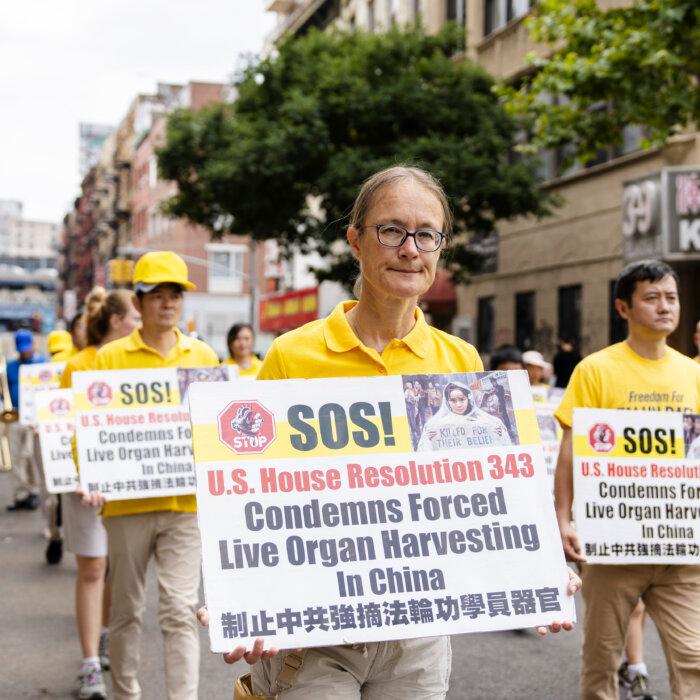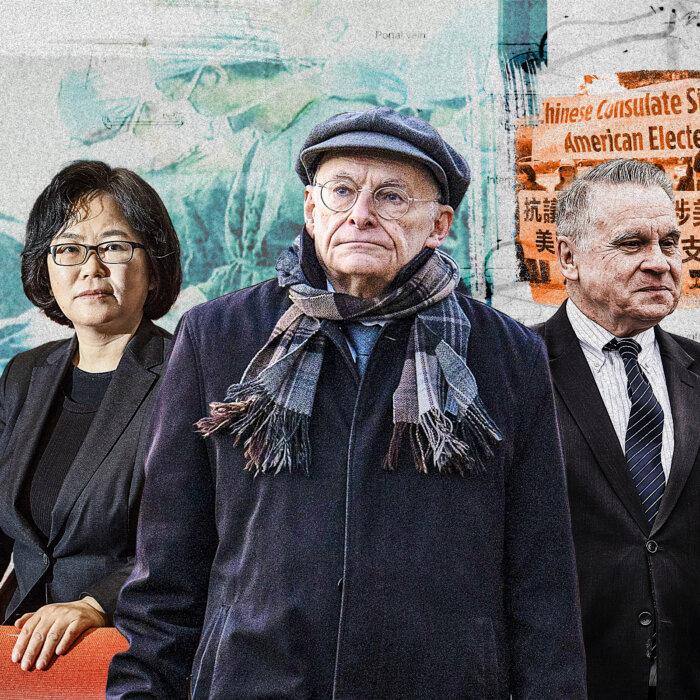A popular Taiwanese singer’s revelation of recently having received a heart-and-liver transplant in China has raised alarm, with critics viewing the celebrity endorsement as part of the Chinese regime’s propaganda effort to whitewash its state-sponsored forced organ harvesting.
Singer and songwriter Lü Jianzhong, better known by his stage name “Tank,” who has struggled for most of his life with an inherited heart defect, emerged five months after his surgery at an April 7 press conference praising doctors from mainland China for what he called a “perfectly smooth operation.” He released a lengthy post the same day on Chinese social media Weibo to update his fans, thanking mainland China—his “motherland”—for being the “most staunch backing” during his health crisis.
Images and clips of the Taiwanese singer expressing gratitude with a throng of Chinese doctors around him quickly circulated on the internet, making him the latest public figure to endorse communist China’s organ transplant system.
China’s state media and local government websites amplified the news; many carried headlines touting the case as an “Asia first,” noting the complexity of the surgery compounded by the fragility of Lü’s condition.
The glowing accounts by China’s state media marked a sharp contrast from the reactions in Lü’s birthplace of Taiwan, where many are questioning the motives behind the enthusiasm.
“The way mainland China gets human organs is problematic; this is well known internationally,” Huang Shi-wei, vice chairman of the medical ethics nonprofit Taiwan Association for International Care of Organ Transplants, told The Epoch Times.
It is thus not surprising that the Chinese regime would promote an operation involving a celebrity to lend credibility to its transplant industry, he said.
“As long as you go to China for organ transplantation, you are helping the Chinese Communist Party promote it.”
Torsten Trey, executive director of Doctors Against Forced Organ Harvesting, said he believes that the Chinese Communist Party (CCP) is making Lü’s operation into a “showcase transplant commercial.”
“They showcase a ‘regular’ organ transplant operation and present a happy patient to market it in Taiwan: ‘You see, China is not so bad,'” he told The Epoch Times.
No Way to Verify Alleged Donor Claims
There’s little information about the organ donor other than claims that he or she had suffered severe head trauma and became brain-dead, a criterion for organ donation to proceed.The mention of head trauma raised more questions from experts.
“China has a record of writing ‘severe trauma to the head’ as the cause of death when firing squad hit the victim with a bullet to the head.”
“The CCP has created a narrative around organ sources; they always claim it’s a post-trauma brain death, but no one has any way to verify it,” Huang said.
The Epoch Times reached out to the singer’s China-based agency for comment but did not receive a response by publication time.
For Huang, the key issue in China’s organ transplant system is the lack of transparency.
He said that the CCP has branded its system as “transparent and traceable, but the problem is that it is completely untransparent.”
“It’s not open to the public and only known to those inside the system,” he said.
To show sincerity, he said, the regime should make its transplantation data available on the internet.







